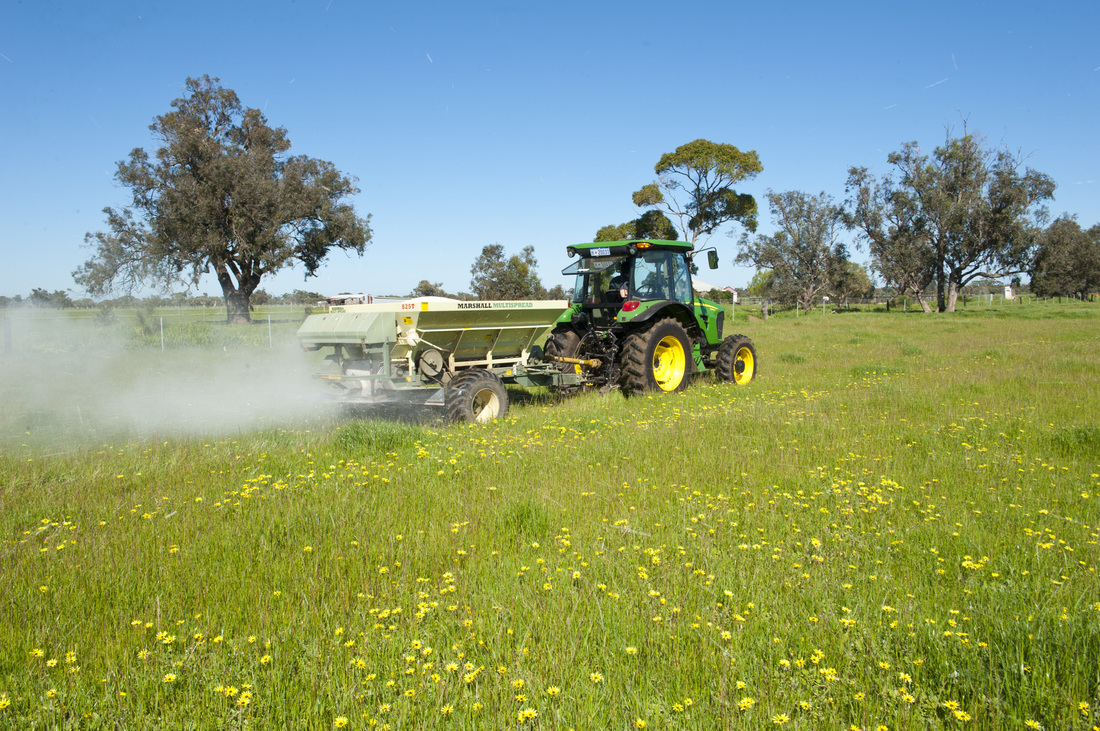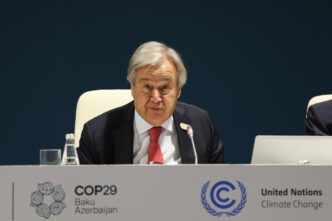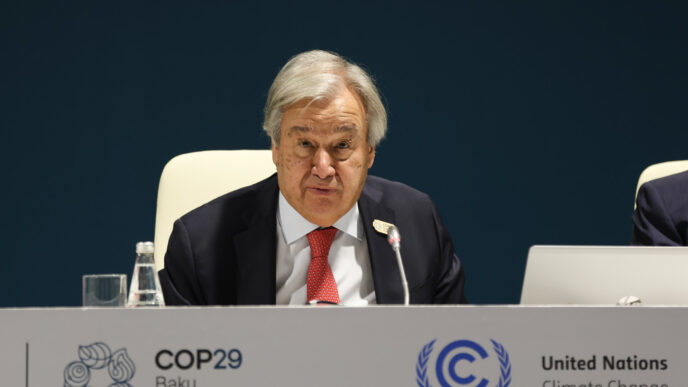Nitrous oxide emitted from fertilisers and manure. Photo credit: Weebly
A new report says nitrous oxide (N₂O), a potent greenhouse gas, is rapidly accelerating climate change and damaging the ozone layer.
The report titled ‘Global Nitrous Assessment’ was launched at the 2024 UN Climate Change Conference (COP29) in Baku, Azerbaijan by the United Nations Environment Programme (UNEP).
The organisation said nitrous oxide is 270 times more potent than carbon dioxide (CO2) and accounts for about 10 percent of net global warming since the industrial revolution.
UNEP noted that the gas is primarily emitted from agricultural practices including synthetic fertilisers and manure.
Advertisement
It added that N₂O is the third most significant greenhouse gas and the top ozone-depleting substance.
The report said by transforming global food production systems and rethinking societal approaches to nitrogen management, the world can cut down nitrous oxide emissions by 40 percent.
“Nitrogen oxide emissions lead to multiple changes in climate drivers in the troposphere, including increased tropospheric ozone, which causes warming, reductions in methane, due to increased formation of the oxidising hydroxyl radical, that causes cooling; and increases in both nitrate and secondary organic aerosols, which cause cooling,” the report reads.
Advertisement
“In response to changes in emissions, the aerosols, ozone and methane responses would be rapid whereas changes in nitrous oxide would take place slowly over a century.”
A.R. Ravishankara, an atmospheric scientist at the Colorado State University and co-chair of the assessment, said adequate nitrogen management will improve air and water quality in the ecosystem.
“A sustainable nitrogen management approach not only reduces nitrous oxide emissions but also prevents the release of other harmful nitrogen compounds,” Ravishankara said.
“This could improve air and water quality, protect ecosystems, and safeguard human health, all while maintaining food security.”
Advertisement
Martina Otto, head of secretariat of the UNEP-convened Climate and Clean Air Coalition, said the assessment is a reminder of the “forgotten super pollutant”.
“By using the abatement tools highlighted in the Assessment that are already available to us, we can yield multiple benefits across climate, clean air, and health,” Otto said.
Add a comment











